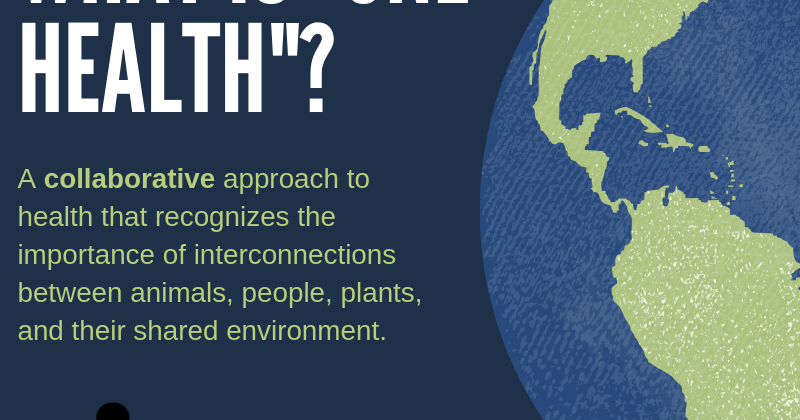One Health Day will be this Sunday, November 3. Go to the One Health Commission website to find out more about activities that may be in your area. This year, Galaxy Diagnostics is co-sponsoring Louisiana One Health in Action’s Walk-n-Wag on Saturday.
One health is an approach that recognizes the relationship between the health of humans, animals and the environment. In particular, the risks of becoming infected with Bartonella have to do with the interdependence of people, animals, and the environment. As a company focused on raising awareness and developing advanced diagnostic tools for flea and tick-borne illnesses, Galaxy Diagnostics sits at the center of one health.
The One Health Commission is in the Research Triangle Park region of North Carolina, as is Galaxy Diagnostics. This area is a center of leadership in human and animal health. The proprietary technology we use at Galaxy Diagnostics was developed at the North Carolina State College of Veterinary Medicine by our co-founders Dr. Edward Breitschwerdt and Dr. Ricardo Maggi. Dr. Breitschwerdt, a veterinarian, consults for human physicians at Duke University. This relationship between animal and human health providers goes to the heart of what one health is all about.
One health programs are being added to university programs in human health, animal health and forestry across the United States and around the world. One health is becoming part of disaster planning and disaster management.
Recent one health programs are as far-reaching as the Global Snakebite Initiative out of Australia, which is making snakebite prevention information available to people worldwide. Meanwhile, the School of Forestry and Wildlife Sciences in Alabama is training students on one health concepts like vector ecology. “Vectors” are organisms like mosquitoes, fleas and ticks that transmit pathogens from a plant or animal to other plants and animals. Vector ecologists can help humans exist in an environment where they are less likely to get sick.
When one health initiatives work well, we hardly see them. One health is the cholera outbreak that doesn’t happen after a massive earthquake. It is music festival plague risk that is avoided before a single person gets sick.
Sometimes it’s hard to envision one health working right because there are still a lot of barriers to effective one health implementation. No one knows that better than Dr. Tracey McNamara, a veterinary pathologist and one health hero. She works at the Bronx Zoo, one of only seven zoos in the United States with veterinary pathologists on staff. In this 2018 TED talk, she explains the events that have made her a legend in the health defense world. The One Health Commission lists her story in their Narratives of One Health In Action.
In 1999, wild crows were dying in the New York City region, including at the Bronx Zoo. For two and a half months the disease was only noted in crows. Then, captive birds at the zoo started to die. Because Dr. McNamara works with such a variety of exotic zoo animals, she always has to assume that the illness she is seeing may be something she has never seen before. At the same time, there were reports in the news of people in the region dying of an unknown illness.
Dr. McNamara tried to get the CDC to test her birds, but they didn’t want animal samples. It took three weeks before she was able to gain the attention of human health experts, and those experts were with the US Army. More than three weeks after she first suspected a connection between her birds and the human deaths and three months after crows first started dying, West Nile Virus was identified as present in the United States for the first time. It would take two more weeks before defense investigators would confirm it was naturally occurring and not bioterrorism.
Dr. McNamara notes that the silos she encountered still exist, stating, “This system virtually guarantees that we will not find an emerging zoonotic threat … until we have people in the emergency room or bodies in the morgue.” Today, in 2019, there is still no national system of monitoring zoonotic threats that is tied to human health monitoring.
In her TED talk, Dr. McNamara notes that in 2001 a public-private partnership was formed to involve all zoo veterinarians in the United States as sentinels for disease. As far as public health expenditures go, it didn’t cost that much. It was the kind of program that may have identified West Nile Virus in the US weeks earlier, before people died. This is the promise of one health that is not yet fully realized.


